Denture Repair
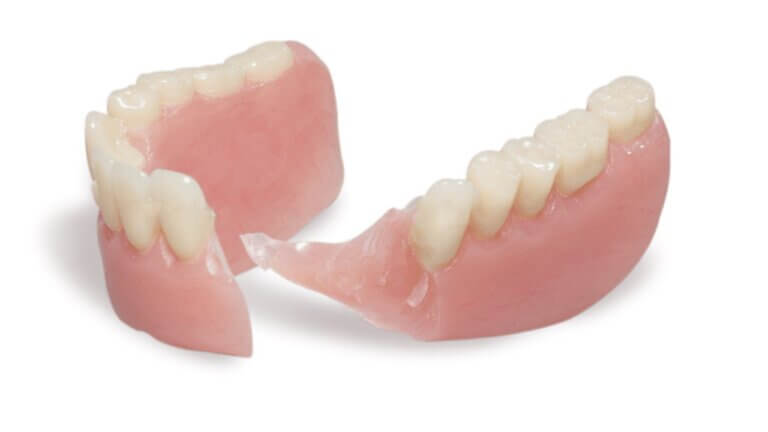
What Is A Denture Repair?
Dentures, also known as false teeth, are removable replacements for missing teeth and surrounding tissues. They are custom-made to fit comfortably in your mouth and mimic the appearance and functionality of natural teeth. Over time, however, wear and tear can take their toll, requiring repair. Just like any other prosthetic or piece of equipment, dentures can experience various issues, such as cracks, fractures, broken clasps, or misalignments.
Denture Repair is the process of restoring or fixing damaged dentures to ensure they maintain their proper form, function, and comfort.Timely repair is essential to avoid discomfort, oral health complications, and to extend the lifespan of your dentures.
Before deciding on whether Denture Repair are right for you, there are some things you should know:
- What Are Common Reasons for Denture Repair?
- What Are Common Causes of Broken Dentures?
- What Are The Alternative Treatments If I Do Not Choose A Denture Repair?
- How Much Does Denture Repair Cost?
- What Are The Steps In The Denture Repair Procedure?
- How Long Does A Denture Repair Last?
If you have any further questions about Denture Repair or other dental services offered at Atlas Dental, please contact us.

Free Phone Consultation
Have questions about a broken denture? Book a free phone consult with our Toronto dentist

5 star google reviews
Our patients love our emergency dental service! See for yourself why patients choose Atlas Dental.

Book a denture repair appointment online
We help denture patients smile confidently again.
What Are Common Reasons for Denture Repair?
Dentures are subject to wear and tear over time. Here are some of the most common reasons why denture repair may be necessary:
- Fractures and Breaks: Accidents happen, and dentures can sometimes be dropped or mishandled, resulting in fractures or breaks. These fractures can occur in various parts of the denture, such as the base, the artificial teeth, or the connectors in partial dentures. Repairing fractures is crucial not only for functionality but also to prevent potential discomfort or injury to oral tissues.
- Loose or Poor-Fitting Dentures: Changes in the shape of the jawbone and oral tissues can impact the fit of dentures over time. This can lead to dentures becoming loose, ill-fitting, or unstable in the mouth. Loose dentures not only compromise comfort but can also cause sore spots and difficulty in speaking and eating.
- Broken Clasps (Partial Dentures): Partial dentures often have clasps that attach to remaining natural teeth, providing stability and support. These clasps can break due to wear or accidents, affecting the fit and function of the partial denture.
- Weakened Clasps and Connectors: Partial dentures feature clasps or connectors that attach to the remaining natural teeth, providing stability. Over time, these components can weaken, or bend out of shape, affecting the fit and function of the partial denture. Repairing or replacing these clasps is crucial to maintain the partial denture’s stability and prevent oral discomfort.
- Cracks or Chips: Even without full fractures, dentures can develop cracks or chips, which may not be immediately noticeable but can worsen over time. Cracks can lead to bacterial accumulation and odor, while chips can create discomfort against oral tissues.
- Discoloration and Stains: Despite regular cleaning, dentures can accumulate stains and discoloration over time, particularly if they are made from materials like acrylic. This can affect the appearance of the denture and compromise the wearer’s confidence.
- Loose Denture Teeth: Dentures consist of artificial teeth that are attached to a base. Over time, the adhesive used to secure these teeth can weaken, causing individual teeth to become loose or even detach from the base. This not only affects the appearance of the denture but can also lead to discomfort, difficulty in chewing, and potential injury to the mouth. Denture repair involves reattaching and securing loose teeth to restore both function and aesthetics.
It’s important to recognize the signs of denture damage and address them promptly to prevent further complications. If you experience discomfort, notice visible cracks or chips, or encounter any issues with the fit and function of your dentures, it’s recommended to seek professional denture repair services. If you have further questions about Denture Repair, please contact us.
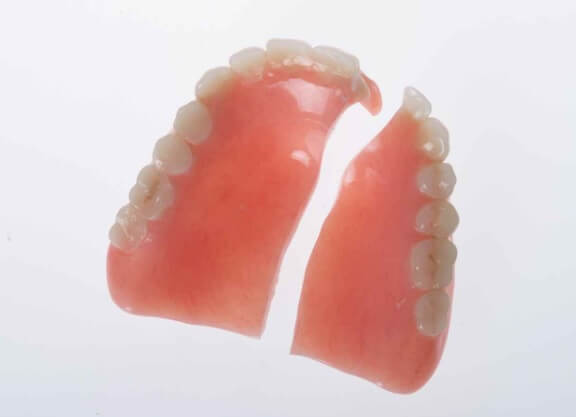
What Are Common Causes of Broken Dentures?
Various factors can lead to broken dentures. Understanding these causes can help you take precautions to minimize the risk of damage. Here are some common culprits behind broken dentures:
- Accidental Dropping: Accidentally dropping dentures, especially onto hard surfaces, can lead to fractures or even complete breakage. The impact can weaken the material over time, making them more prone to breaking with each subsequent drop.
- Chewing Hard Foods: While dentures are designed to handle regular chewing, consuming extremely hard or tough foods, such as ice, hard candies, or tough meats, can exert excessive pressure and cause dentures to crack or snap.
- Improper Handling: Incorrect handling of dentures can lead to cracks or fractures. For instance, using excessive force when cleaning them or inserting/removing them from your mouth can weaken the structure over time.
- Normal Wear and Tear: Like any other object, dentures experience wear and tear from everyday use. Over time, this can lead to the deterioration of the denture material, making them more susceptible to damage.
- Changes in Fit: Weight fluctuations, changes in jaw structure, and alterations in oral tissues can affect the fit of dentures. Ill-fitting dentures may experience uneven pressure distribution, leading to stress points that can result in fractures.
- Age of Dentures: Dentures, like all things, have a lifespan. Older dentures are more likely to experience breakage due to the natural degradation of the materials over time.
- DIY Repairs: Attempting to fix broken dentures at home using adhesives or other quick fixes can often lead to further damage. DIY repairs might seem convenient, but they rarely provide a lasting solution.
- Teeth Grinding (Bruxism): If you have a habit of grinding or clenching your teeth, especially at night, it can place undue stress on your dentures, potentially leading to cracks or fractures.
- Exposure to Heat: Exposing dentures to high temperatures, such as hot beverages or direct sunlight, can distort their shape and compromise their integrity.
- Inadequate Maintenance: Proper care and maintenance play a crucial role in the longevity of dentures. Failing to clean them regularly or using improper cleaning agents can weaken the materials and contribute to breakage.
If you find yourself facing broken dentures, seeking professional assistance from a qualified dentist or denturist is always the best course of action to ensure safe and effective repairs. If you have further questions about Denture Repair, please contact us.
What Are The Alternative Treatments If I Do Not Choose A Denture Repair?
When faced with broken dentures, you have several alternatives to consider, each with its own set of advantages and considerations. Here are some alternative treatments if you decide not to opt for denture repair:
- New Dentures: If your current dentures are significantly worn, damaged, or outdated, you might opt for getting new dentures altogether. This is a suitable option if your dentures are no longer providing the desired fit, comfort, or appearance. New dentures can be custom-made to fit your current oral contours and offer improved functionality.
- Implant-Supported Denture: Dental implants provide a stable foundation for dentures, enhancing stability and functionality. Implant-supported dentures are secured to implants surgically placed in your jawbone. This option offers greater chewing efficiency and can eliminate concerns about denture slippage.
- Dental Implants: Dental implants are a more permanent solution for tooth replacement. If you have significant bone resorption or chronic issues with denture fit, your dentist might recommend dental implants to anchor your dentures securely in place. Implants provide stability, prevent bone loss, and enhance overall denture function.
- Dental Bridge: A dental bridge is a fixed prosthesis that replaces one or more missing teeth by attaching to adjacent natural teeth or implants. It’s an alternative to dentures that can provide stability and aesthetic improvement.
- No Treatment: While not recommended, choosing no treatment is an option. However, it’s essential to understand the potential consequences of not addressing broken dentures. Without functional teeth, your ability to chew, speak, and maintain oral health may be compromised. Adjacent teeth may shift, and jawbone integrity might be affected.
It’s important to have an open and honest conversation with your dentist about your concerns, preferences, and expectations. Your dental professional can provide personalized recommendations based on your oral health status, lifestyle, and goals. If you have further questions about Denture Repair, please contact us.
Cost of Denture Repair
The cost of a Denture Repair can range from $98 to $284 plus Dental Lab Fee depending if a dental impression is required, and if it is for a complete denture or a partial denture. The codes relevant to dentures in the Ontario Dental Association’s Suggested Fee Guide appear as follows:
Denture, Repair, Complete Denture, No Impression Required
- 55101 – Maxillary: $98 + Dental Lab Fee
- 55102 – Mandibular: $98 + Dental Lab Fee
Denture, Repair, Complete Denture, Impression Required
- 55201 – Maxillary: $144 + Dental Lab Fee
- 55202 – Mandibular: $144 + Dental Lab Fee
Denture, Repairs/Additions, Partial Denture, No Impression Required
- 55301 – Maxillary: $96 + Dental Lab Fee
- 55302 – Mandibular: $96 + Dental Lab Fee
Denture, Repairs/Additions Partial Denture, Impression Required
- 55401 – Maxillary: $151 – 284 + Dental Lab Fee
- 55402 – Mandibular: $151 – 284 + Dental Lab Fee
Denture repairs are sometimes considered a supplementary service by dental insurance plans and may or may not be covered by your dental insurance. Be sure to find out from your dental insurance plan provider how much you are eligible for before going ahead with dental treatment. Your dentist can help you submit an predetermination to your dental insurance. Our fees are consistent with the ODA Fee Guide.
For patients without dental insurance, Atlas Dental is pleased to offer dental financing through Dentalcard. Affordable payment plans start at 7.95% for terms of 6 months to 6 years. To learn more about Dentalcard dental treatment financing, follow this link.
What Are The Steps In The Denture Repair Procedure?
Your dental professional will follow a systematic procedure to ensure that your dentures are restored to their optimal condition. Here are the typical steps involved in the denture repair process:
- Assessment and Examination: The first step is to schedule an appointment with a dental professional who specializes in denture repair. During the assessment, the dentist will thoroughly examine your dentures to identify the extent of the damage. They will also discuss any discomfort or issues you’ve been experiencing.
- Diagnosis and Recommendation: Based on the examination, the dentist will diagnose the specific problems with your dentures and provide you with recommendations for repair. Depending on the nature of the damage, they will explain whether a simple repair, adjustment, or more complex procedure is needed.
- Preparation: If repair is deemed appropriate, the dentist will begin the preparation process. This involves removing any debris, adhesive, or old bonding material from the damaged area to ensure a clean surface for repair.
- Bonding and Alignment: For small cracks, chips, or broken components, the dentist will use specialized dental adhesives to bond the pieces back together. They will ensure that the repaired area aligns properly with the rest of the denture to maintain a comfortable fit.
- Rebuilding and Replacement: In cases where the damage is extensive, the dentist might need to rebuild certain parts of the denture using compatible materials. This could involve creating new denture teeth, repairing the denture base, or replacing broken clasps.
- Polishing and Finishing: After the repairs are completed, the dentist will carefully polish the repaired area to create a smooth and natural-looking finish. This step is essential for both aesthetic reasons and to prevent any rough surfaces from causing discomfort in your mouth.
- Testing and Adjustment: Before handing the dentures back to you, the dentist will conduct a series of tests to ensure that they fit properly, allow for normal functionality, and are comfortable to wear. If any adjustments are needed, they will be made at this stage.
- Patient Education and Follow-up Monitoring: The dentist will provide you with post-insertion instructions on how to care for your newly repaired dentures. Depending on the extent of the repair, the dentist might recommend a follow-up appointment to ensure that the dentures continue to function well and that you’re not experiencing any discomfort.
Remember that attempting DIY denture repairs using over-the-counter kits or home remedies is not recommended, as these methods can lead to further damage and compromise the integrity of your dentures. Professional dental care is crucial for achieving safe, effective, and long-lasting repairs. If you have further questions about Denture Repair, please contact us.
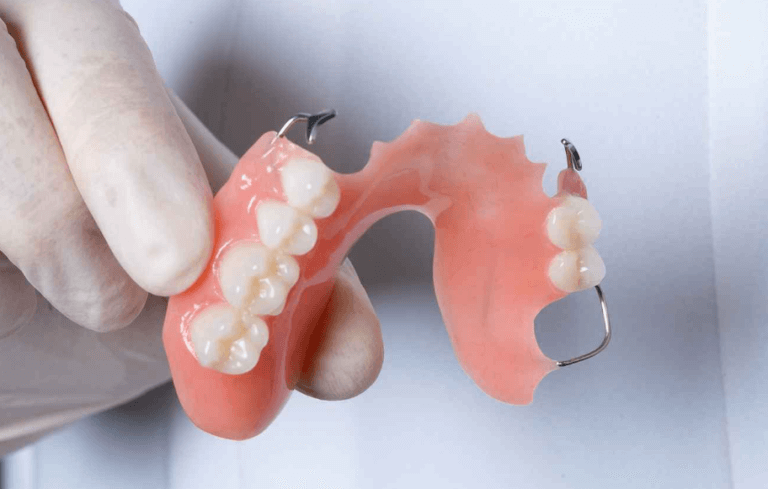
How Long Does A Denture Repair Last?
While denture repairs can effectively restore your dental prosthetics to their functional state, it’s important to understand that they might not last indefinitely. The longevity of denture repair varies depending on several factors:
- Type and Extent of Repair: Minor repairs, such as fixing small cracks or chips, can often provide lasting results when performed by a skilled dental professional using high-quality materials. These repairs can last several months to a few years, depending on the daily wear and tear your dentures experience.
- Quality of Materials: The durability of denture repairs also depends on the materials used during the repair process. High-quality dental adhesives and bonding materials tend to provide better longevity compared to subpar alternatives.
- Denture Maintenance: Proper care and maintenance play a significant role in extending the lifespan of denture repairs. Regularly cleaning your dentures, avoiding harsh cleaning agents, and following your dentist’s care instructions can help prevent unnecessary wear and tear.
- Daily Usage: The frequency and intensity of your denture use can impact how long repairs last. If you wear your dentures daily and subject them to rigorous chewing and biting, repairs might wear out sooner compared to dentures used less frequently.
- Oral Care Habits: Good oral hygiene practices, such as cleaning your dentures after meals and removing them at night, can contribute to the longevity of repairs. Maintaining a healthy oral environment helps prevent the breakdown of materials and reduces the risk of complications.
- Regular Check-ups: Periodic visits to your dentist for routine check-ups allow them to assess the condition of your dentures and catch potential issues early on. Timely adjustments and minor repairs can help prevent the need for more extensive repairs in the future.
If you find that your dentures require frequent repairs or if the same issues keep arising, it might be worth discussing with your dentist whether denture replacement is a more suitable option. If you have further questions about Denture Repair, please contact us.
We also think you’ll like…
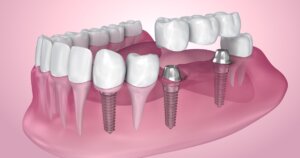
Dental Implant Bridge
Dental Implant Bridge What Is A Dental Implant Bridge? A dental implant bridge is a prosthetic device used to replace one or more missing teeth
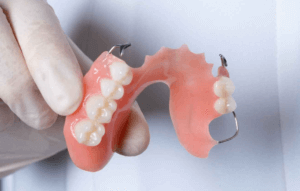
Acrylic Partial Denture
Acrylic Partial Denture What Is An Acrylic Partial Denture? An Acrylic Partial Denture is a removable partial dental prosthetic designed to replace one or more
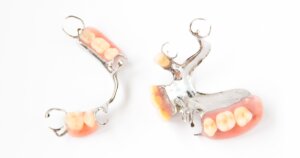
Dentures
Dentures What Are Dentures? Dentures are removable oral appliances designed to replace missing teeth and surrounding tissues. They are custom-made to fit comfortably in your
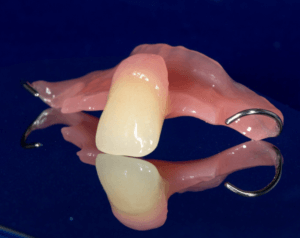
Single Tooth Denture
Single Tooth Denture What Is A Single Tooth Denture? A Single Tooth Denture, also known as a “Flipper” or “Single Tooth Removable Partial Denture,” is

Endosteal Dental Implant
Endosteal Dental Implant What Is An Endosteal Dental Implant? Endosteal Dental Implants stand as a revolutionary solution for restoring smiles and dental functionality. These implants

Denture Reline
Denture Reline What Is A Denture Reline? As time goes by, Dentures, the removable prosthetic teeth used to replace missing teeth, can start to lose

